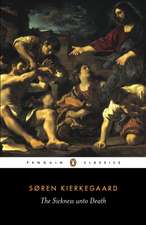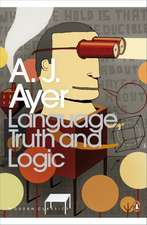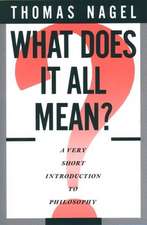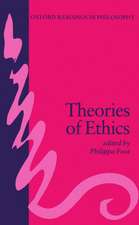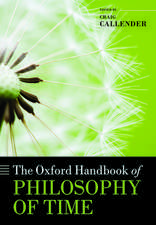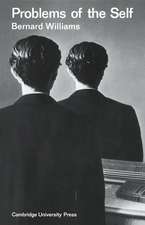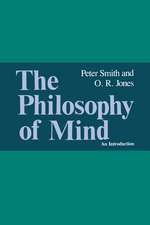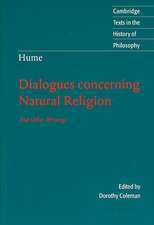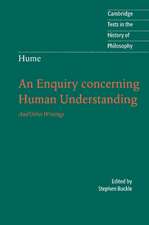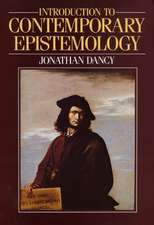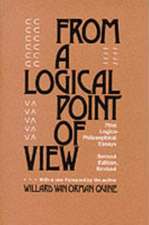Plato: 'The Republic'
Autor Plato Editat de G. R. F. Ferrari Traducere de Tom Griffithen Limba Engleză Paperback – 24 sep 2000
Preț: 119.68 lei
Nou
Puncte Express: 180
Preț estimativ în valută:
22.91€ • 24.89$ • 19.26£
22.91€ • 24.89$ • 19.26£
Carte disponibilă
Livrare economică 31 martie-14 aprilie
Livrare express 15-21 martie pentru 34.39 lei
Preluare comenzi: 021 569.72.76
Specificații
ISBN-13: 9780521484435
ISBN-10: 052148443X
Pagini: 436
Ilustrații: notes, glossary
Dimensiuni: 140 x 217 x 30 mm
Greutate: 0.64 kg
Editura: Cambridge University Press
Colecția Cambridge University Press
Locul publicării:Cambridge, United Kingdom
ISBN-10: 052148443X
Pagini: 436
Ilustrații: notes, glossary
Dimensiuni: 140 x 217 x 30 mm
Greutate: 0.64 kg
Editura: Cambridge University Press
Colecția Cambridge University Press
Locul publicării:Cambridge, United Kingdom
Cuprins
Introduction: the thirty; Faction; A Spartan utopia?; The philosopher and the king; A political work?; City and soul; Mathematics and metaphysics; A guide to further reading; Principal dates; Abbreviations and conventions; Editor's synopsis of The Republic; The Republic: Book 1; Book 2; Book 3; Book 4; Book 5; Book 6; Book 7; Book 8; Book 9; Book 10.
Recenzii
"[Griffith's] aim was to traslate the Greek text as if it were a conversation, and he has succeeded admirably." Library Journal
"In addition to a vivid, dignified and accurate rendition of Plato's text, the student and general reader will find many aids to comprehension in this volume: an introduction that assesses the cultural background to the Republic, its place within political philosophy, and its general argument; succinct notes in the body of the text; an analytical summary of the work's content; a full glossary of proper names; a chronology of important events; and a guide to further reading. The result is an accomplished and accessible edition of this seminal work, suitable for philosophers and classicists as well as historians of political thought at all levels." African Sun Times Review of Books
"In addition to a vivid, dignified and accurate rendition of Plato's text, the student and general reader will find many aids to comprehension in this volume: an introduction that assesses the cultural background to the Republic, its place within political philosophy, and its general argument; succinct notes in the body of the text; an analytical summary of the work's content; a full glossary of proper names; a chronology of important events; and a guide to further reading. The result is an accomplished and accessible edition of this seminal work, suitable for philosophers and classicists as well as historians of political thought at all levels." African Sun Times Review of Books
Descriere
This book, first published in 2000 is a vivid and accurate rendition of Plato's classic work of political thought.
Notă biografică
Plato was an ancient Greek philosopher born in Athens during the Classical period in Ancient Greece. In Athens, Plato founded the Academy, a philosophical school where he taught the philosophical doctrines that would later become known as Platonism. Plato (or Platon) was a pen name derived, apparently, from the nickname given to him by his wrestling coach - allegedly a reference to his physical broadness. According to Alexander of Miletus quoted by Diogenes of Sinope his actual name was Aristocles, son of Ariston, of the deme Collytus (Collytus being a district of Athens).[2]Plato was an innovator of the written dialogue and dialectic forms in philosophy. He raised problems for what later became all the major areas of both theoretical philosophy and practical philosophy. His most famous contribution is the Theory of forms, which has been interpreted as advancing a solution to what is now known as the problem of universals. He is also the namesake of Platonic love and the Platonic solids.His own most decisive philosophical influences are usually thought to have been, along with Socrates, the pre-Socratics Pythagoras, Heraclitus, and Parmenides, although few of his predecessors' works remain extant and much of what we know about these figures today derives from Plato himself.[a]Along with his teacher, Socrates, and his student, Aristotle, Plato is a central figure in the history of philosophy.[b] Unlike the work of nearly all of his contemporaries, Plato's entire body of work is believed to have survived intact for over 2,400 years.[6] Although their popularity has fluctuated, Plato's works have consistently been read and studied.[7] Through Neoplatonism Plato also greatly influenced both Christian and Islamic philosophy (through e.g. Al-Farabi). In modern times, Alfred North Whitehead famously said: "the safest general characterization of the European philosophical tradition is that it consists of a series of footnotes to Plato
Caracteristici
Concludes that justice, self-control (sophrosyne), and virtue (arete) are 'natural'; the city which displays them is most truly free; the individuals who possess them will achieve their true destiny.

